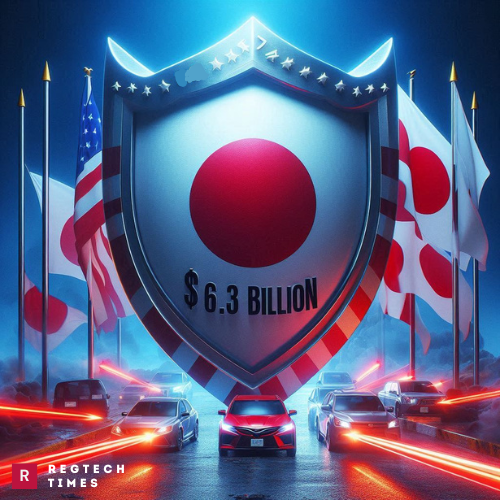Japan is stepping up with a big plan to protect its economy from the heavy impact of tariffs placed by the United States. The Japanese government has approved a $6.3 billion spending package aimed at helping companies and families who are struggling because of these new trade costs. This move is part of a growing trend among countries trying to soften the blow of rising tariffs caused by disagreements in international trade.
What Are Tariffs and Why Is Japan Affected?
Tariffs are extra taxes that countries put on goods coming from other countries. Recently, the United States placed tariffs on many products from Japan, especially cars and car parts. These tariffs make Japanese goods more expensive to sell in the U.S. market, which is one of Japan’s biggest buyers.
Japan’s car industry is very important for its economy. Major companies like Toyota Motor, Honda Motor, and Nissan Motor make a lot of money from exporting cars and parts. But now, because of the tariffs, these companies are losing profits. For example, Toyota Motor expects to lose around $1.3 billion in just two months because of the extra costs caused by the tariffs. Other car makers are also feeling the pain and are planning to change how they operate. Nissan Motor is even thinking about closing two plants in Japan and moving some production to the United States to avoid paying these tariffs.
$28 Billion Shockwave: Japan’s Biggest Firms Buckle Under Brutal U.S. Tariff Barrage
The tariffs are not just hurting big companies. They are also affecting many smaller businesses that supply parts for the car industry. If these smaller companies lose money or jobs, it could make the problem even worse for the whole economy.
$6.3 Billion Plan to Help Businesses and Families
To deal with this situation, the Japanese government has decided to spend $6.3 billion to support both businesses and ordinary people. The money will go to small and medium-sized businesses that have been hurt by the tariffs. These smaller companies often don’t have as much money saved up, so the government help is important to keep them going.
Besides helping businesses, the plan will also help families by paying part of their energy bills. Rising prices caused by tariffs and other economic problems have made it harder for many households to pay for things they need, like electricity and gas. This subsidy is meant to ease that burden.
Cabinet Secretary Yoshimasa Hayashi explained that the funds will “fully support” those affected by the tariffs. The timing of this plan is also linked to politics. Japan is preparing for an important election in the summer. The government wants to show voters that it is doing something to protect their jobs and control rising costs. However, Japan also faces a big challenge with its national debt, which is one of the highest among wealthy countries. Spending $6.3 billion is a big commitment in this difficult situation.
Japan Economy Struggles Under Export Pressure and US Tariff Threat
Trade Talks Continue but No Easy Solutions Yet
While Japan is launching this financial support plan, talks between Japan and the United States about the tariffs are still going on. Japan’s top tariff negotiator, Ryosei Akazawa, has been meeting with U.S. officials in Washington to try to negotiate an exemption from the auto tariffs. So far, the U.S. side has made it clear that they are not willing to remove the tariffs easily.
The talks have been slow, and no deal has been reached yet. Mr. Akazawa expressed some hope that an agreement could be reached during a meeting planned for mid-June, where leaders from several countries will gather. This meeting will be an opportunity for Japan to push for relief from the tariffs that are causing so much trouble.
Other countries are also trying to protect their economies from similar problems. Spain, for example, announced a $15 billion plan to help its industries and workers. Canada has set aside billions of dollars for similar support. This shows that many nations are feeling the impact of the tariffs and are working hard to reduce the damage.
